
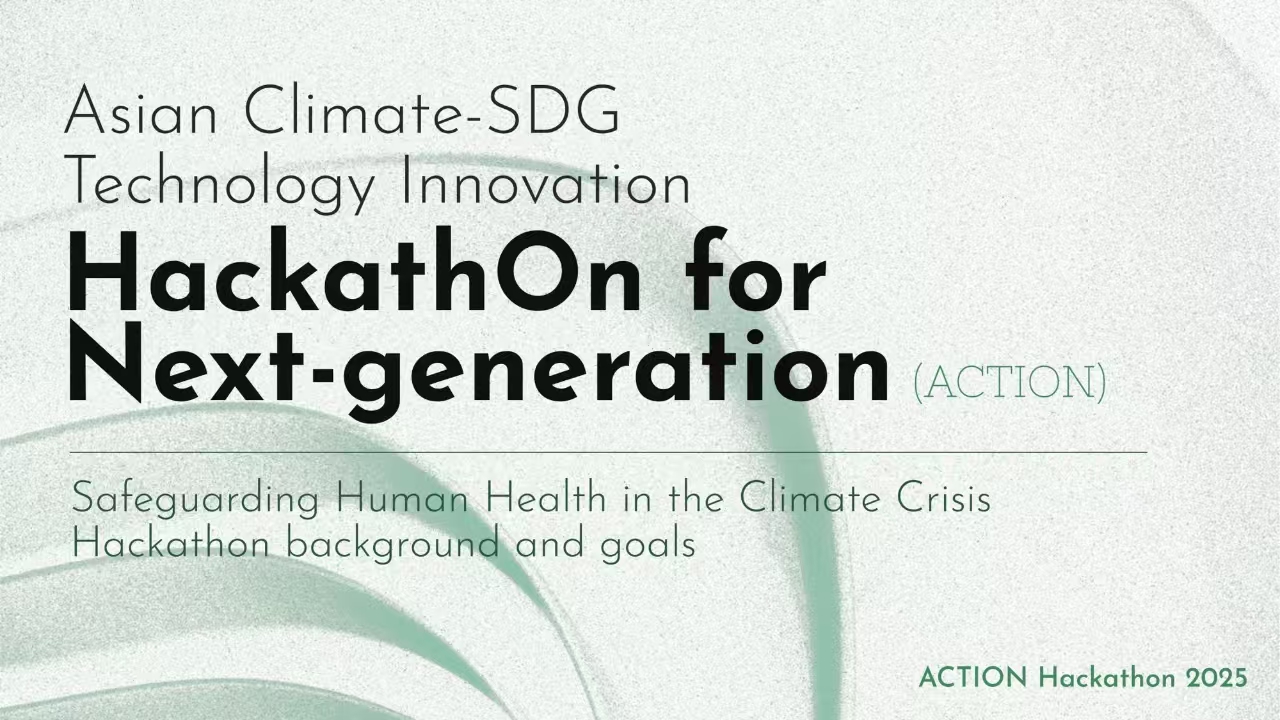
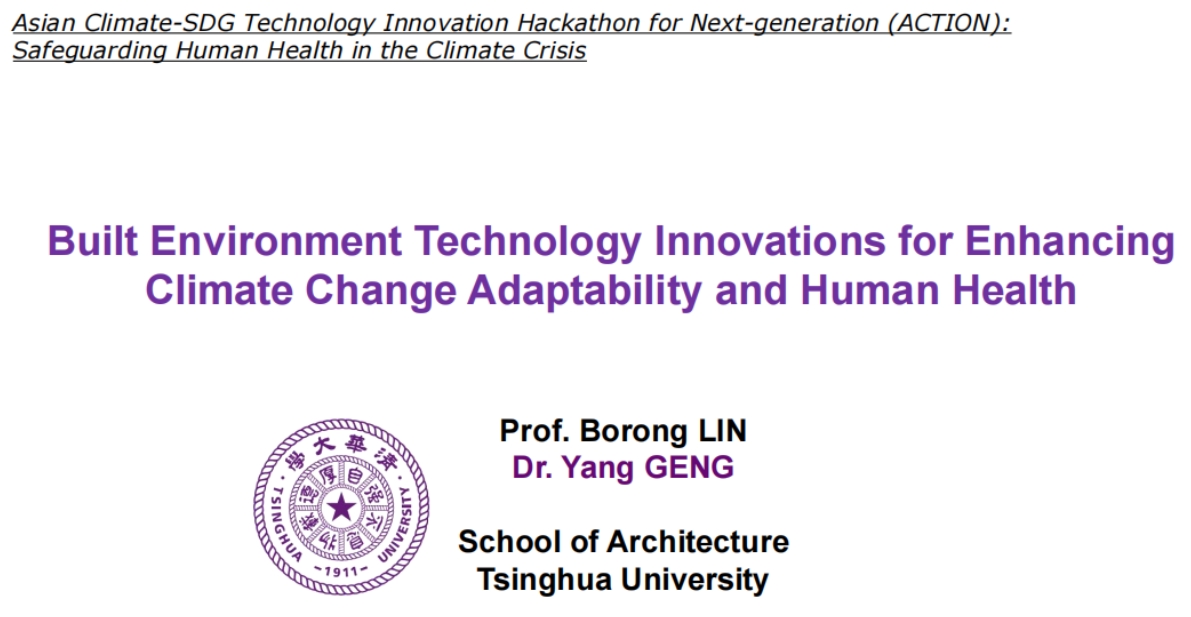
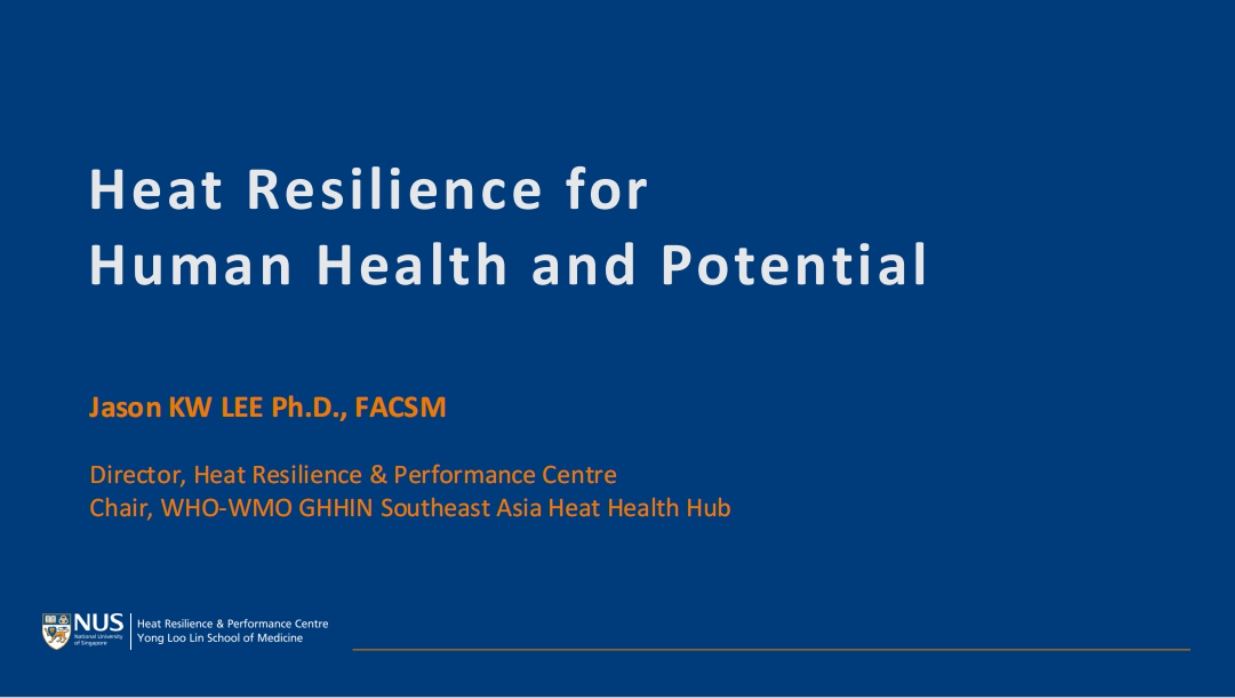
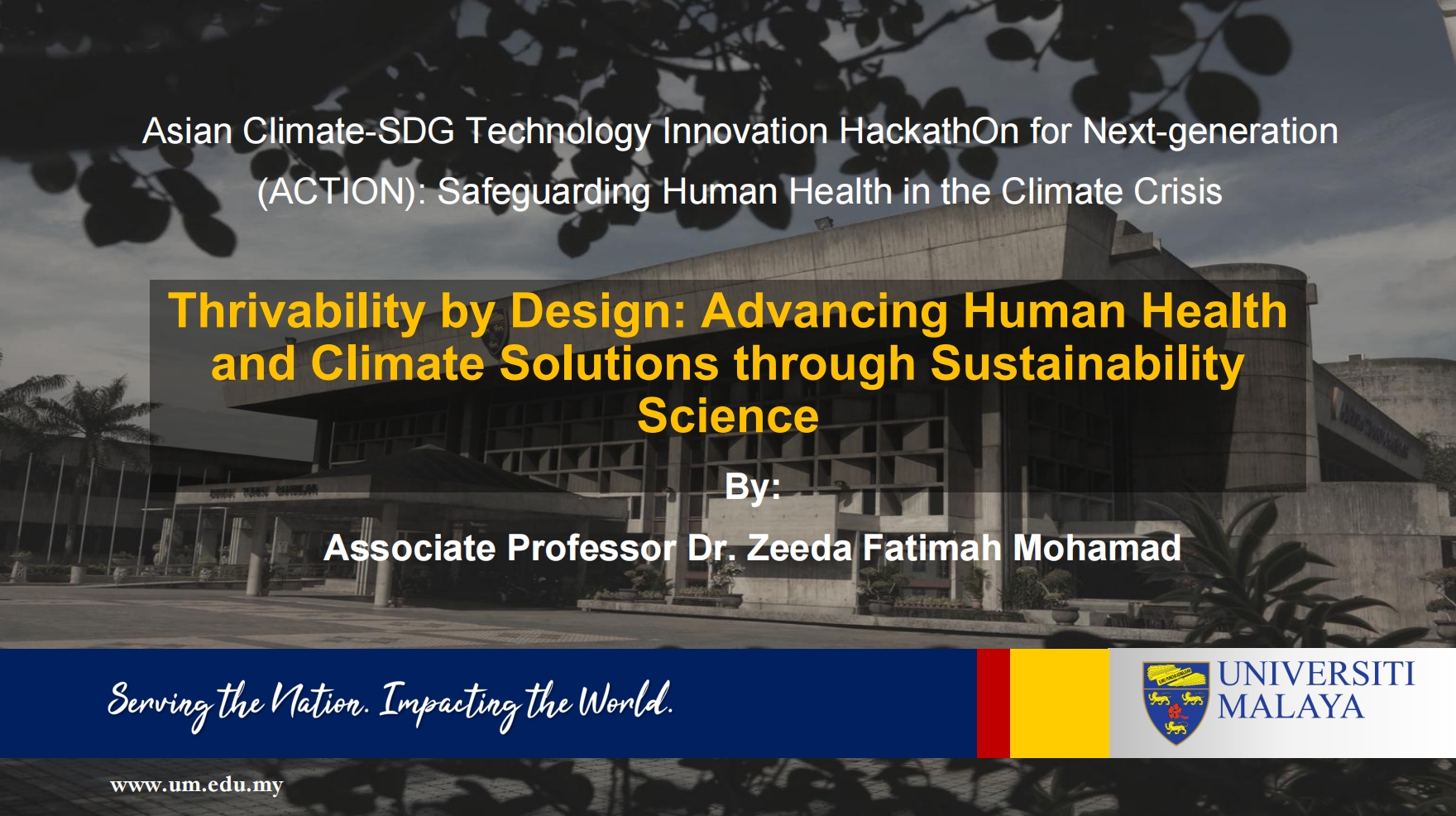
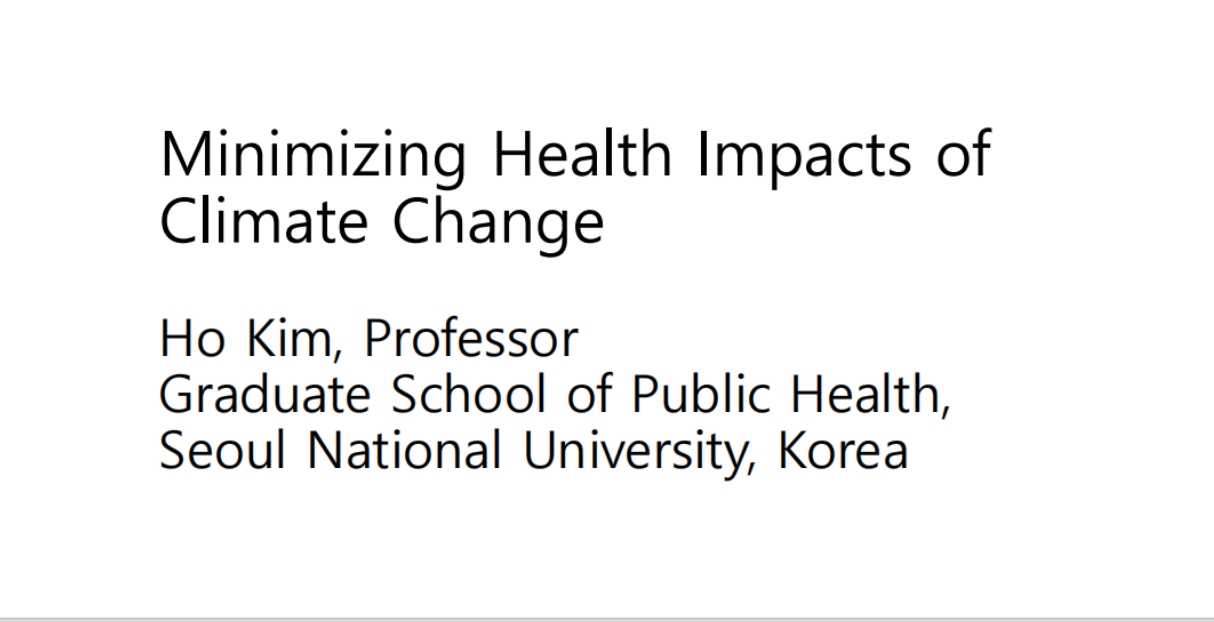
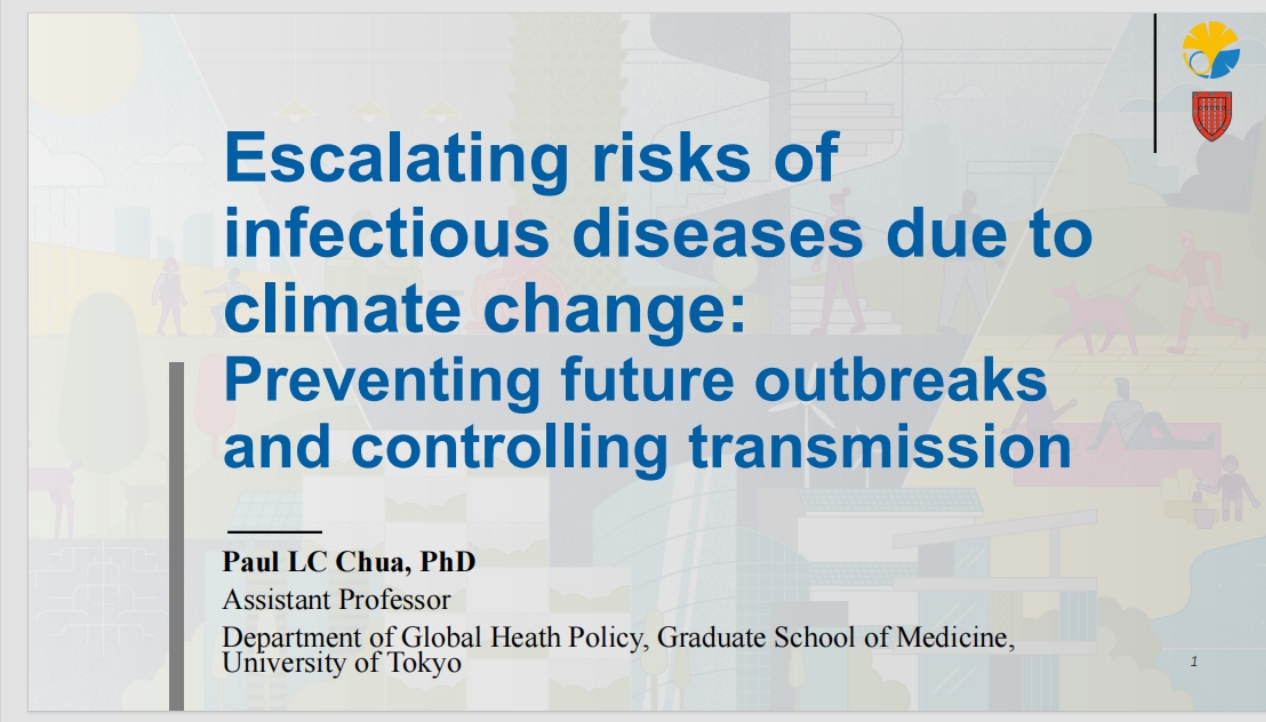
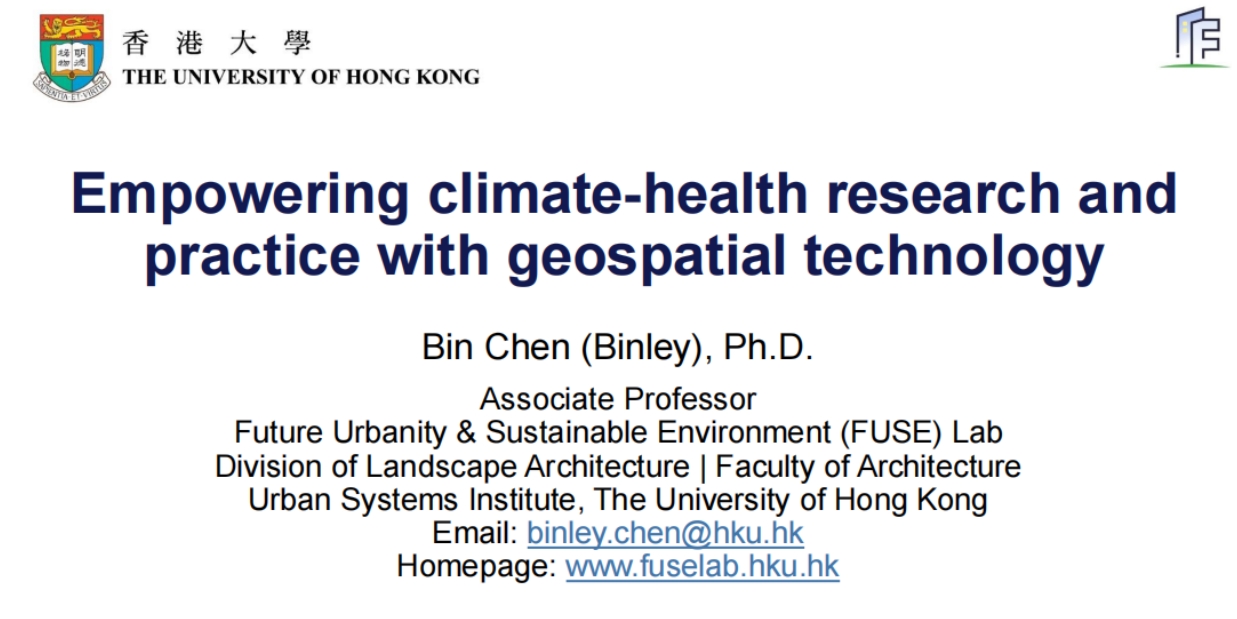
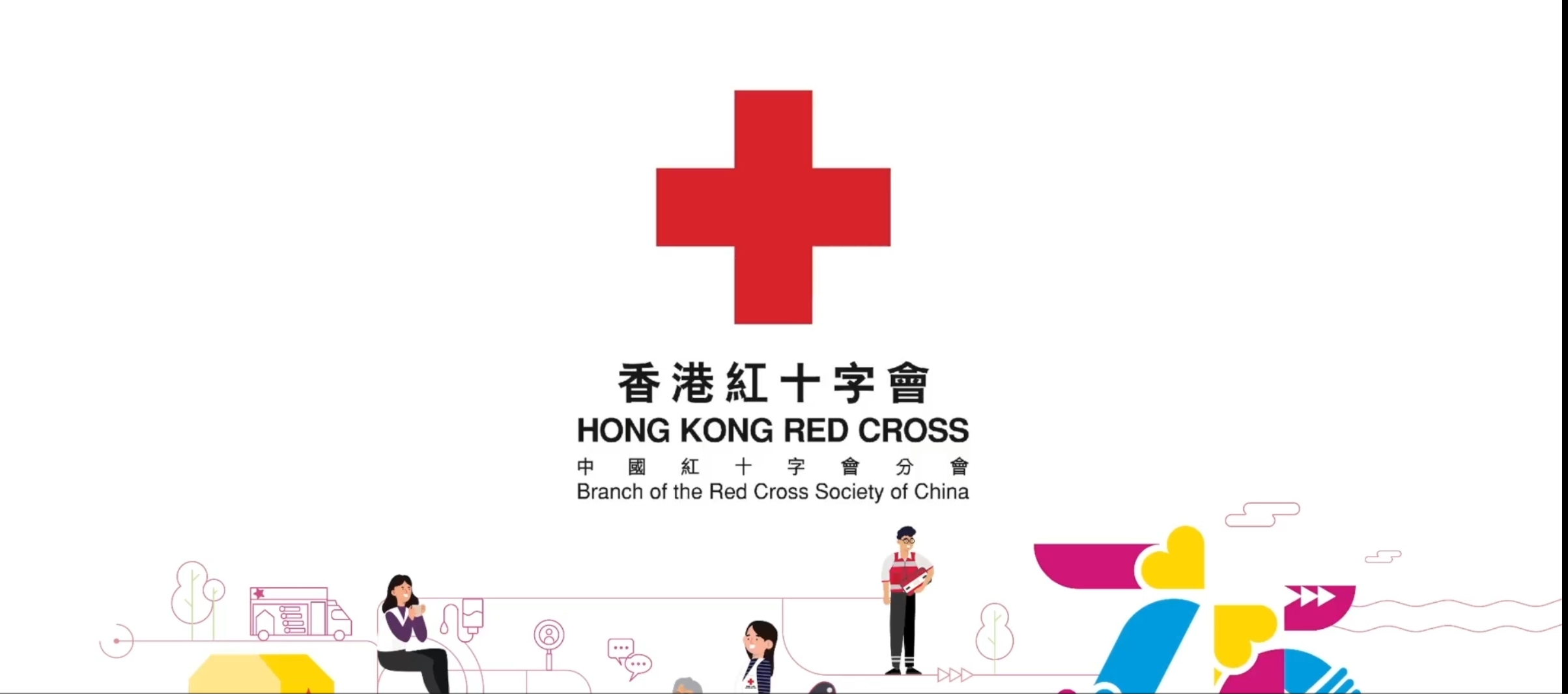
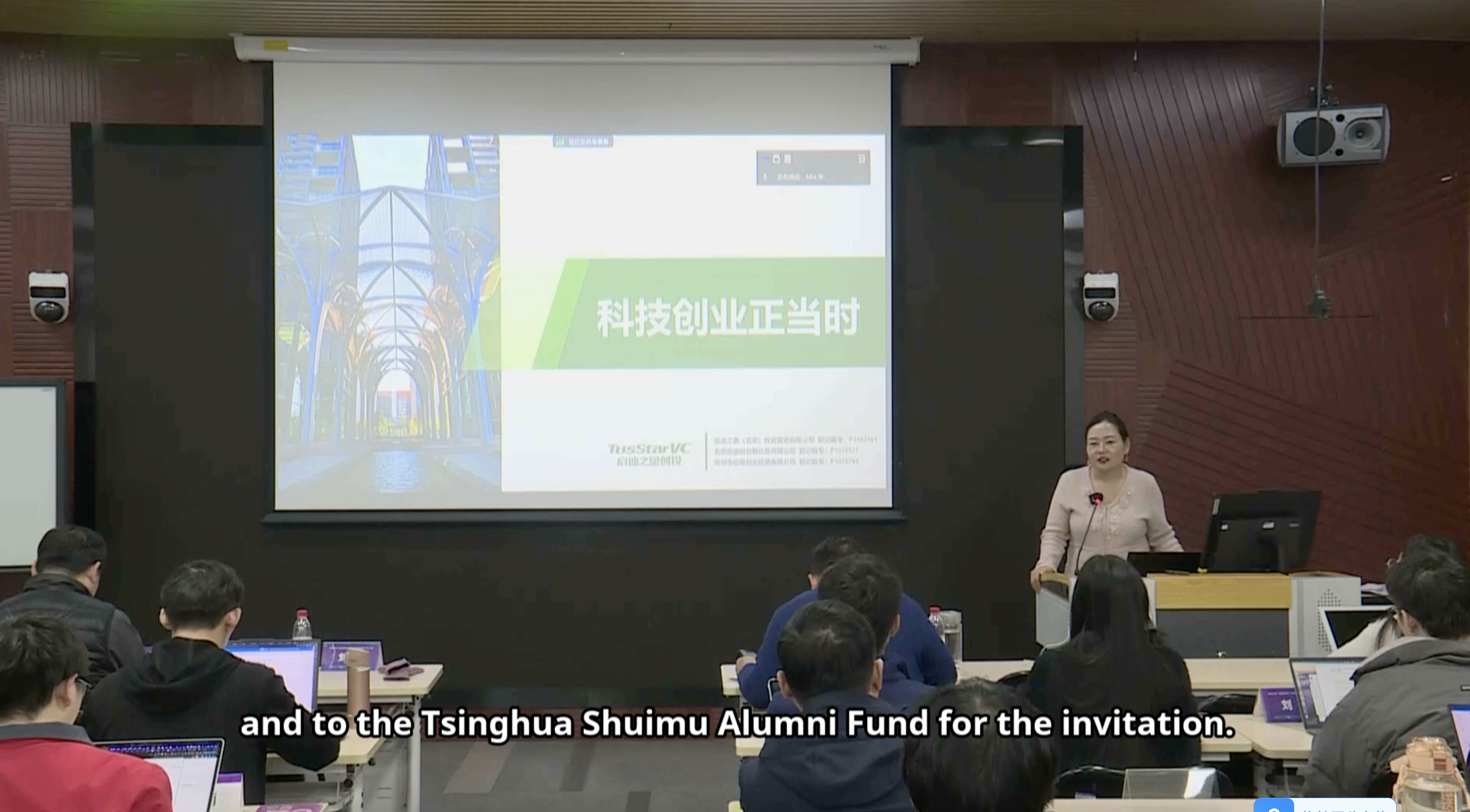

Welcoming remarks
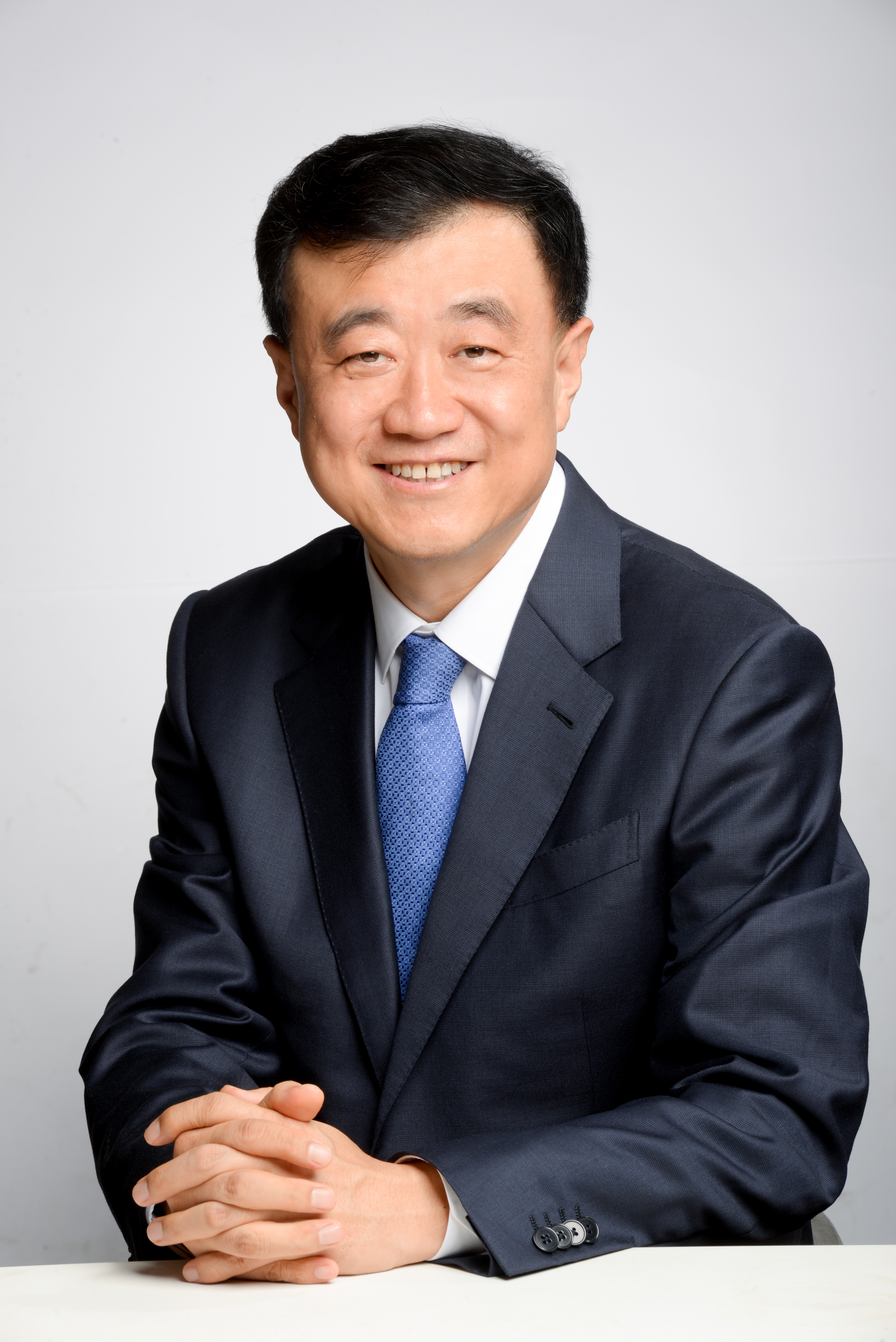
“Climate-related health risks are among the most urgent and complex issues of our time. Addressing them calls for deep scientific understanding, technological ingenuity, and human-centered design. This hackathon is not just a platform for innovation—it is a crucible for cultivating future leaders who can integrate knowledge into action. Tsinghua University is very proud to support these emerging changemakers.”

“Safeguarding human health in a changing climate demands more than incremental change—it requires transformative thinking and cross-sector collaboration. This innovation challenge empowers the next generation to reimagine solutions at the intersection of climate and health. At The University of Hong Kong, we are committed to supporting these pioneers to turn their bold ideas into action.”
Results & Announcements
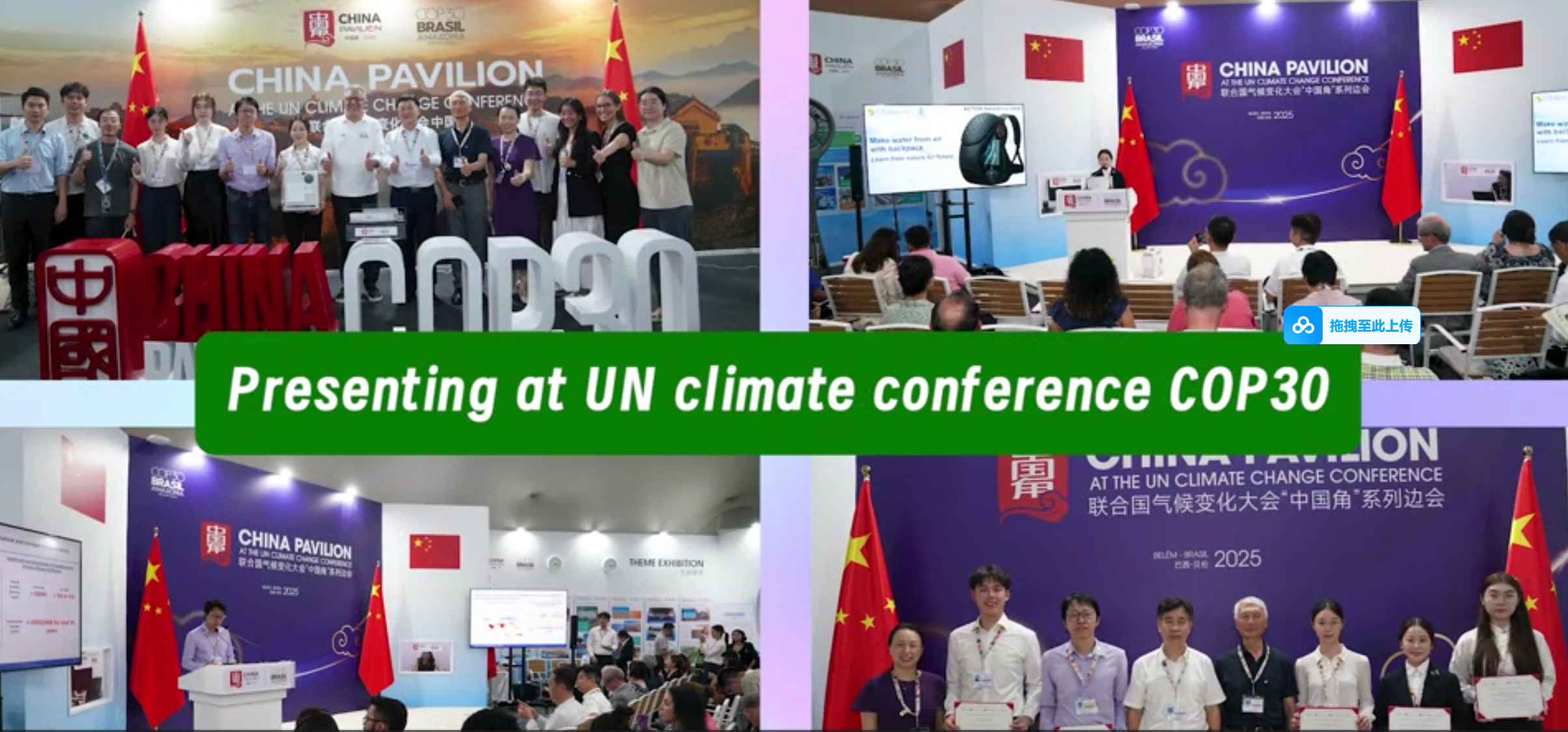
2025 Annual Review: Asian Climate-SDG Technology Innovation HackathOn for Next-generation (ACTION): Safeguarding Human Health in the Climate Crisis
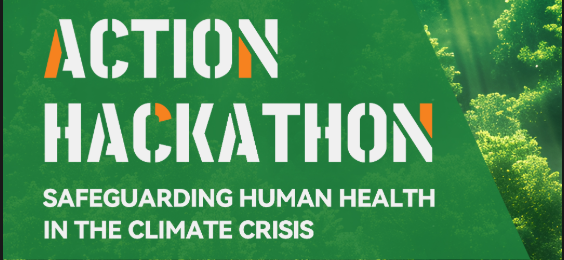
The 2025 Asian Climate-SDG Technology Innovation HackathOn (ACTION) concluded successfully, Showcasing Youth-Led Climate-Health Solutions at COP30
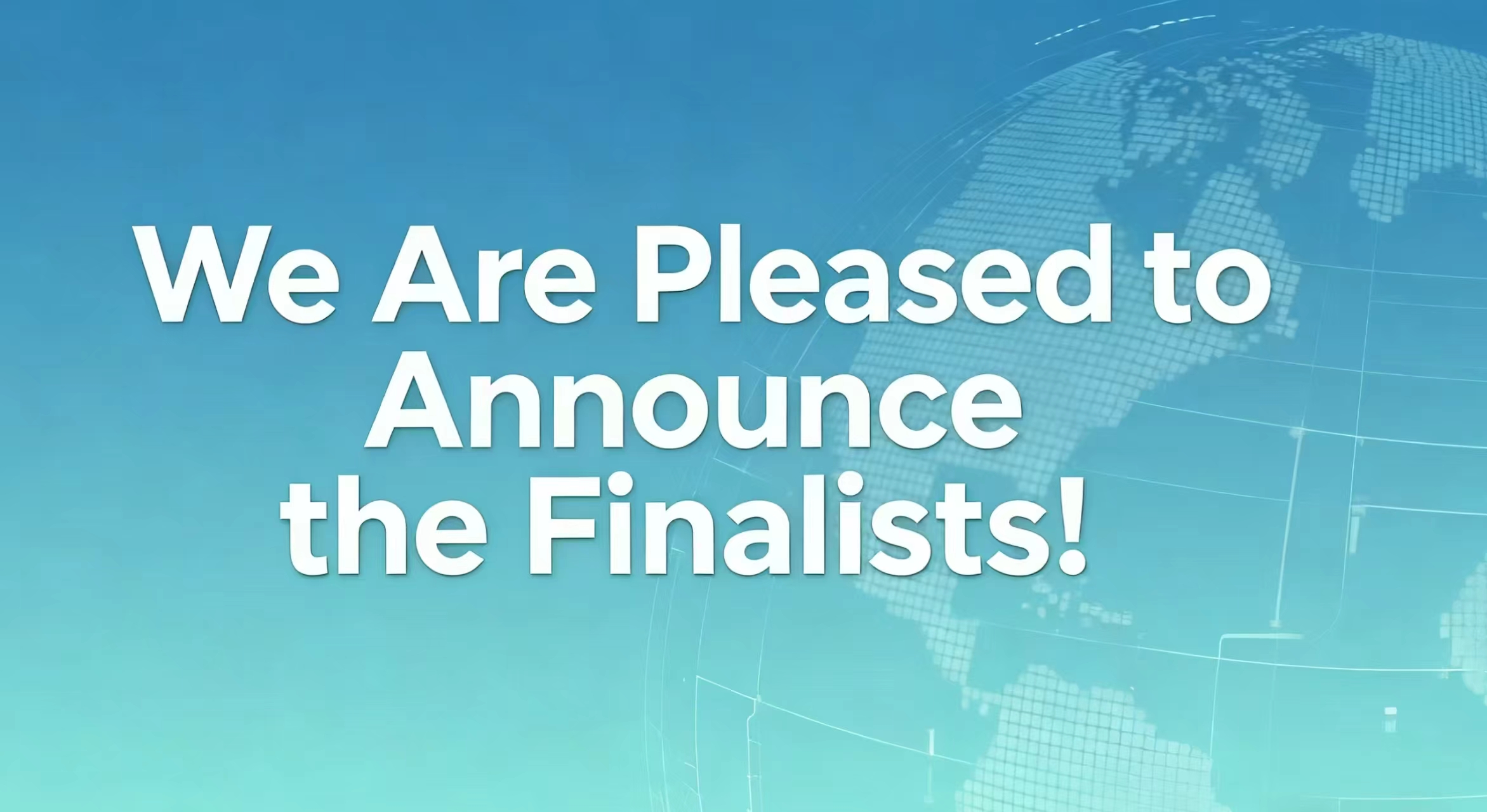
Announcement of Finalists for the 2025 Asian Climate-SDG Technology Innovation HackathOn
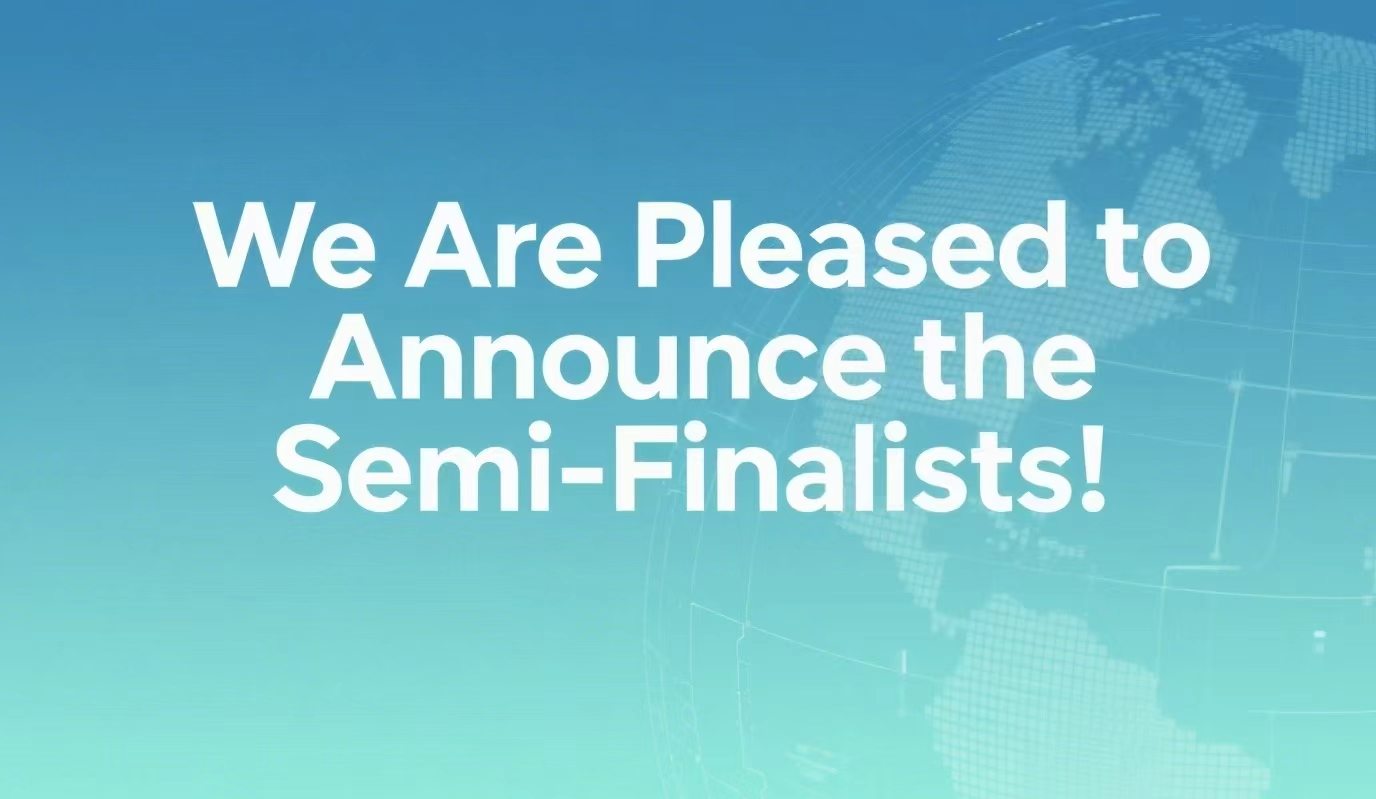
Announcement of Semi-finalists for the 2025 Asian Climate-SDG Technology Innovation Hackathon
Introduction to the hackathon

Background and Goals
More+Millions in Asia are battling deadly heatwaves, catastrophic floods and climate-driven diseases. There is an urgent need for cost-effective, replicable, and scalable technological solutions to safeguard human health amidst the climate crisis. Join this ACTION hackathon and share your ideas!
The World Meteorological Organization (WMO) and the World Health Organization (WHO) have repeatedly warned that climate change poses severe challenges to global public health. Urgent need for cost-effective, replicable, and scalable technological solutions to safeguard human health amidst the climate crisis.
To fill in the aforementioned gap, Tsinghua University, in collaboration with The University of Hong Kong, National University of Singapore and supported by Asian Universities Alliance and the International Competence Development Committee of the Chinese Society of Educational Development Strategy will convene the inaugural Asian Climate-SDG Technology Innovation HackathOn for Next-generation (ACTION): Safeguarding Human Health in the Climate Crisis, from May to November, 2025. This hackathon will require university students to submit project proposals outlining innovative solutions, accompanied by a 3-minute demonstration video. Finalist teams will be awarded prizes(shown below). It aims to:
· foster a deeper understanding on climate change and health issues among Asian university students
· encourage interdisciplinary collaboration
· stimulate innovative solutions to real-world challenges
· enhance their leadership and entrepreneurship skills
Awards and Benefits
More+All participating teams:Certificate & series of exciting lectures;
Finalist teams:Attendance at COP30 in Brazil & Roadshow in Hong Kong (scholarship of HKD 20,000).
·Attendance at COP30 in Brazil: Every finalist team will receive one official UNFCCC accreditation to attend the 30th Conference of the Parties (COP30) scheduled for November 2025 in Belém, Brazil.
·Capacity Development: All participating teams will gain exclusive access to a series of exciting lectures (delivered through hybrid modalities) related to the issues surrounding climate change and health from distinguished scholars and policy makers around the world, to raise awareness, deepen understanding and stimulate ideas. All participating teams will additionally receive entrepreneurship training on intellectual property management, impact investing, and venture scaling. A dedicated mentor for semi-finalist teams will also be provided to further improve the project. Training materials available here .
·Pitching Opportunities: Finalist teams will have the opportunity to secure spots in startup roadshows to pitch their ideas, with potential of receiving startup incubation support. This roadshow will include a stop in Hong Kong, where the HKU Institute for Climate and Carbon Neutrality will organize the roadshow and offer a scholarship of HKD 20,000 to each of the 5 finalist teams.
·Certificate: All teams nominated by their own universities will receive a certificate of participation. Teams that are shortlisted for the finals will further receive award certificates. These certificates will be signed by all organizing institutions(not applicable to local teams of Hong Kong).
Note: An invitation to co-organize this hackathon has been extended to the World Meteorological Organization and the World Health Organization, with confirmation anticipated by August 2025. Additional participation benefits will be announced in due course.
Hackathon Focus Areas
More+New technologies, materials, methods or business models to protect vulnerable groups during extreme weather events.
The challenge topics of this innovation competition include but are not limited to:
·New technologies or materials for protecting the health of vulnerable groups during heatwaves (such as the elderly, outdoor workers, women, children, persons with disabilities, specific occupational groups, and marginalized communities)
·New Temperature regulation technologies or materials for indoor and outdoor environments
·New technologies for protecting personal hygiene, drinking water safety, and environmental sanitation during floods and droughts
·New health protection technologies for coping with other extreme weather events in Asia (such as typhoons, cold waves, heavy snow, mudslides, etc.)
·New methods for protecting health from climate-sensitive infectious diseases (e.g., innovative technologies for mosquito and tick control, rodent control in underdeveloped areas; efficient and low-cost tracking and prevention technologies for climate-sensitive diseases)
·New Technologies and business models for forecasting, early warning, public education, and commercial innovation (e.g., how to provide efficient and low-cost weather forecasts in regions with weak meteorological infrastructure; health alert applications; personalized health management software that provides specific protective recommendations during extreme weather)
Judging criteria
More+Technical Innovation (30%), Health Impact Metrics (20%), Scalability Potential (30%), Commercial Viability (20%).
·Technical Innovation (30%)-Emphasizes breakthrough thinking and originality and assesses the novelty of the solution
·Health Impact Metrics (20%)-Evaluates how effectively the solution addresses a health-related challenge, and includes measurable benefits or projected outcomes
·Scalability Potential (30%)-Assesses the practicality and potential for the solution to be adapted and/or expanded, and if the solution could create lasting impact
·Commercial Viability (20%)-Evaluates the business potential and long-term feasibility and success in the market
Note: Commercial entities (if applicable) must be registered after 1 January 2018. The project must demonstrable ownership rights with zero active IP disputes.
Judges
More+UN and national governments, venture capitalists, and public health experts.
An esteemed judging panel comprising world-leading academics, representatives from the UN and national governments, venture capitalists, and public health experts will be formally announced on event website in the coming weeks.
Eligibility & Team & Documents
More+Current undergrad/grad students from invited university can join. Alumni/postdocs may join as non-core members. 3-5 members per team all from the same university.
Eligibility Participants:
Currently enrolled undergraduate/graduate students from universities invited to participate in the hackathon (list shown below). Alumni and postdoctoral researchers may join as non-core members.
Team Structure:
3-5 members per team all from the same university
A minimum of two core team members must be currently enrolled undergraduate/graduate students
Multi-disciplinary collaboration encouraged
Mandatory Submission Documents:
·Completed Project Proposal (Download link here)
·3-minute concept/demonstration video (Language in English; MP4/H.264; submissions exceeding 3:05 automatically disqualified)
IMPORTANT:
Deadline:
Specific date and time decided by each invited university (mostly likely in early August). Late entries will not be entertained!
Submission Method:
Tsinghua Students: Please submit the above materials to gofio@mail.tsinghua.edu.cn, with the email subject titled “ACTION2025-Tsinghua-Department-Leader's Name”. It is recommended to use Tsinghua University Cloud or other cloud sharing platforms to ensure the attachment size does not exceed the email limit.
Non-Tsinghua Students (including Chinese and international students): Please submit the above materials to the contact email address specified by your invited university, and cc to gofio@mail.tsinghua.edu.cn. The email subject should be titled “ACTION2025-University-Department-Leader's Name”. It is recommended to use Dropbox, Baidu Cloud, or other cloud sharing platforms to ensure the attachment size does not exceed the email limit. If you are unsure of the submission email for your university, or you have other questions, please check the competition website or contact healthclimate@tsinghua.edu.cn.
Invited universities include(Alphabetical order):
·Beijing Institute of Technology (China)
·Chulalongkorn University (Thailand)
·Fudan University (China)
·Indian Institute of Technology Bombay (India)
·King Saud University (Saudi Arabia)
·National University of Singapore (Singapore)
·Nazarbayev University (Kazakhstan)
·Peking University (China)
·Qatar University (Qatar)
·Renmin University of China (China)
·Seoul National University (Republic of Korea)
·Shanghai Jiao Tong University (China)
·The Hong Kong University of Science and Technology (China)
·The University of Hong Kong (China)
·The University of Tokyo (Japan)
·Tsinghua University (China)
·United Arab Emirates University (UAE)
·Universiti Malaya (Malaysia)
·University of Colombo (Sri Lanka)
·University of Indonesia (Indonesia)
·University of Yangon (Myanmar)
·Zhejiang University (China)
Information Sessions

There will be two info sessions in total: one on June 19, 2025, from 1:00 PM to 2:30 PM (GMT+8), and the other on June 20, 2025, from 2:00 PM to 3:30 PM (GMT+8). You’re strongly encouraged to attend one info session live and watch the other’s recording; their distinct training modules will spark critical ideas for tackling climate-health challenges.
Information Session 1 Agenda(Download) Jun 19, 2025 13:00-14:30 PM (GMT+8)
Link: https://zoom.us/j/8965937960?pwd=V2VrQk1QMzg0VHVobGIwYURiaElnQT09
Zoom meeting ID:896 593 7960
Password:rHR2sG
Information Session 2 Agenda(Download) Jun 20, 2025 14:00-15:30 PM (GMT+8)
Link: https://zoom.us/j/8965937960?pwd=V2VrQk1QMzg0VHVobGIwYURiaElnQT09
Zoom meeting ID:896 593 7960
Password:rHR2sG
Submission Requirements

Submission Documents:
·Completed Project Proposal (Download link here)
·3-minute concept/demonstration video (Language in English; MP4/H.264; submissions exceeding 3:05 automatically disqualified)
IMPORTANT:
Deadline:
Specific date and time decided by each invited university (mostly likely in early August). Late entries will not be entertained!
Submission Method:
Tsinghua Students: Please submit the above materials to gofio@mail.tsinghua.edu.cn, with the email subject titled “ACTION2025-Tsinghua-Department-Leader's Name”. It is recommended to use Tsinghua University Cloud or other cloud sharing platforms to ensure the attachment size does not exceed the email limit.
Non-Tsinghua Students (including Chinese and international students): Please submit the above materials to the contact email address specified by your invited university, and cc to gofio@mail.tsinghua.edu.cn. The email subject should be titled “ACTION2025-University-Department-Leader's Name”. It is recommended to use Dropbox, Baidu Cloud, or other cloud sharing platforms to ensure the attachment size does not exceed the email limit. If you are unsure of the submission email for your university, or you have other questions, please check the competition website or contact healthclimate@tsinghua.edu.cn.
Training materials

Video introduction of this hackathon

Yang Geng(Tsinghua University):Built Environment Technology Innovations for Enhancing Climate Change Adaptability and Human Health.

Jason Lee(National University of Singapore):Heat Resilience for Human Health and Potential.

Zeeda Mohamad(Universiti Malaya):Thrivability by Design: Advancing Human Health and Climate Solutions through Sustainability Science.

Ho Kim(Seoul National University):Minimizing Health Impacts of Climate Change.

Paul Chua(University of Tokyo):Escalating risks of infectious diseases due to climate change: Preventing future outbreaks and controlling transmission.

Bin Chen(the University of Hong Kong):Empowering climate-health research and practice with geospatial technology.

Hong Kong Red Cross:Vulnerability and Need of At-risk Communities under Climate Change

The right time for tech entrepreneurship.

The right time for tech entrepreneurship.